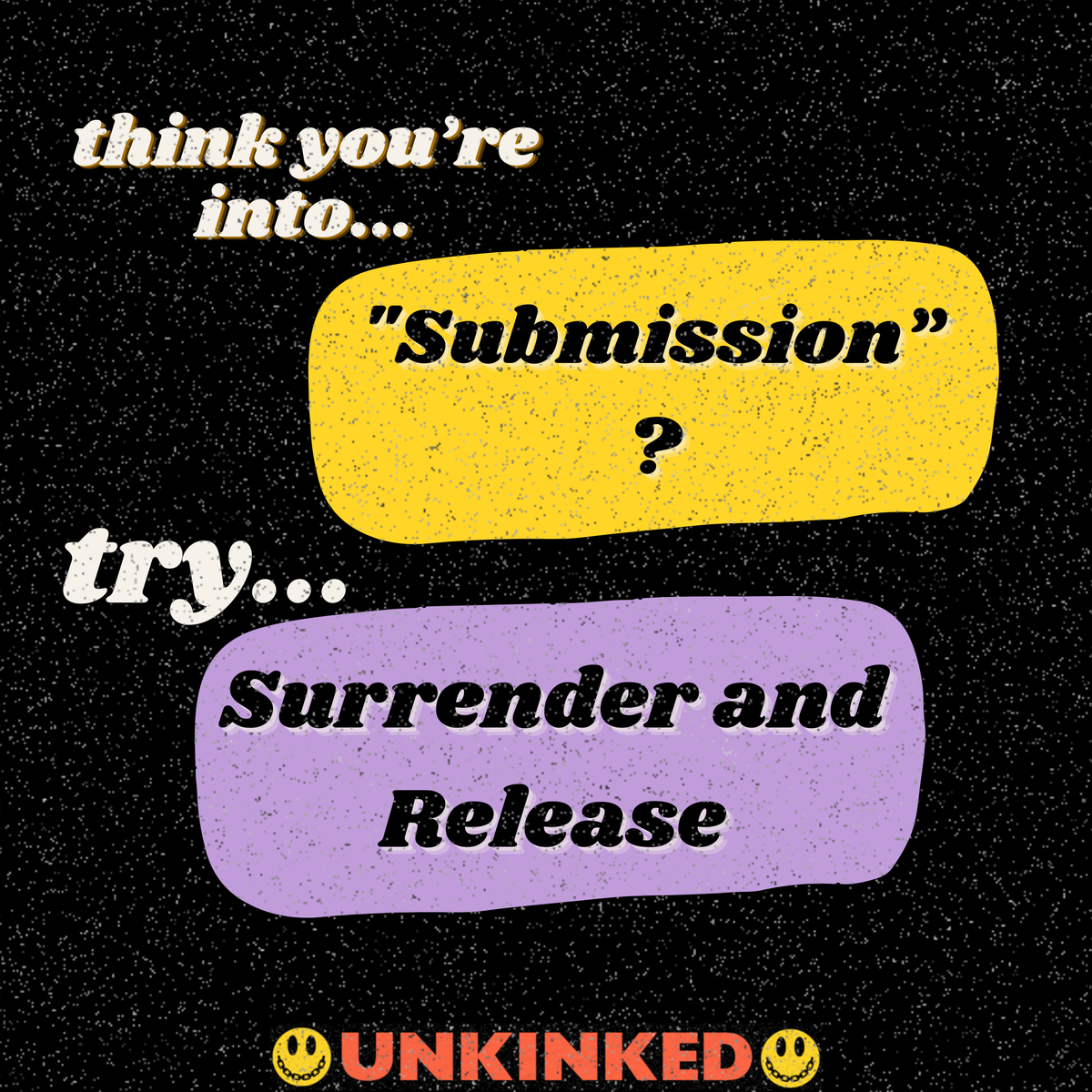Submission vs Surrender

Language is important when it comes to having what we want in life.
The words we have access to shape our desires and create our experience.
BDSM educators describe submission as a conscious choice in kink, however the state of submission is an unconscious physiological response.
The condition of submitting– the behaviors and mindsets associated with this state– are the body and mind's automatic response to perceived or real threat.
Many people– women; people of marginalized race, color, and ethnicity; trauma survivors, to name a few– are conditioned to be submissive from a young age. Defer to authority. Stay small, quiet, agreeable. Don't rock the boat. "Be nice."
Internalizing submission is the body/mind's response to the threatening conditions within a culture of domination. It is a way of remaining safe and alive, especially as children.
To label the learned trauma responses of submission as innate personality traits or adult desires is a disservice that keep us alienated from knowing our own power.
When outward circumstances are overwhelming and beyond our control, submission is adaptive for our bodies and mind to survive. The more this pattern is reinforced, the more normal it becomes. Submission becomes second nature, and the mind and body attune to people and circumstances that reinforce the comfort in this conditioned state of being.
Eroticizing trauma makes it pleasurable to stay limited, afraid, and in pain.
Kink offers the illusion of power when the reality of power has been made dangerous.
The kink of submission carries with it the kink of dominance. These are two sides of the same coin, dependent on each other to reinforce conditioned modes of survival under oppressive conditions.
Submission is labelled powerlessness, so contains its opposite as well: a shadow side of power. Similarly, dominance has a shadow side of powerlessness.
To identify with submission is to identify with victimhood. This is the paradoxical power, because in a culture of domination and oppression, victimhood provides a secure cultural script which often removes the burdens of responsibility and agency.
Identifying with submission can be comfortable and rewarding, but it can never be real. It relies on the false affirmations of a culture which sees our power as able to be given and taken away.
In BDSM as in dominator culture, victimhood cannot be fully recognized and healed because victims are necessary in a structure that is maintained by systems of hierarchical relationships.
While abusive behavior is criticized on a surface level, both the cult of BDSM and culture of domination work to make abuse safer, not to eliminate it.
BDSM would not and could not exist without abuse, because the dynamics of oppression and violence are the very fabric of its reality.
In unkinking our relational perspectives, it becomes clear that mutual desires shared between people can never really be about "dominance and submission."
To label any spectrum of healthy human desires with the same words that describe abuse hierarchies continues the programming of a dominance culture that teaches us that desire can be "kinky"– powerless, unsafe, or wrong.
Unkinking means recognizing that desire itself gives us power.
What is traditionally called "submission" in BDSM education is typically about an experience of surrender, receiving, and release.
It is only in a culture of trauma that so many people could tragically associate these potent, pleasurable states as ones submission, fear, and powerlessness.
Desiring an experience of surrender and release- orgasm, crying, energetic flow, deep sensation, transcendence- isn't submission.
It also isn't "safe and sane" nor is it "risk aware" to not be able to say what we mean.
When the culture of BDSM and kink education teaches the same D/s hierarchy as the culture of domination, how can we ever expect these spaces to ever be safe, radical, or liberation-based?
The idea of "giving up power" inherent to the word submission primes the body and mind to a fear-based trauma response of fawn or flop. This is how retraumatization happens so often in BDSM even with careful negotiation. We are running on programming that has normalized our pain.
In an unkinked world, victimhood receives the compassion and recognition necessary to grow and heal into sovereignty.





